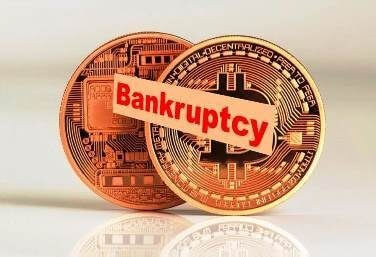
Many businesses, especially those large and small overseas, have begun to accept bitcoin as a form of payment for goods and services. As of October 2017, companies such as Subway, Expedia, Dish Network, Etsy, Gap, J.C. Penney and Whole Foods accepted bitcoin as a form of payment, either directly or through gift cards purchased with bitcoin. And because bitcoin is gaining ground and further solidifying itself as having tangible monetary value, it now has entered the context of bankruptcy law. Specifically, as the mainstream use of bitcoin and other cryptocurrencies increases and the value of bitcoin rises, so does the likelihood that bitcoin, in large or small quantities, will begin to show up as an “asset” of the debtor in a bankruptcy case.
What Is Bitcoin?
A CNN Money article defined bitcoin as “a new currency that was created in 2009 by an unknown person using the alias Satoshi Nakamoto.”
Bitcoins can be used to buy merchandise anonymously and are not tied to any country or subject to regulation. They are typically stored in a “digital wallet” on the user’s computer or mobile device. The wallet acts like a virtual bank account and allows the user to send or receive bitcoins. The IRS recently defined bitcoin as an “intangible asset” for investors, making it subject to capital gains and loss treatment using the realization method. While bitcoin lingers between a currency and an asset, more than 100,000 bitcoin transactions are taking place every day.
Bitcoin in Bankruptcy
While bitcoin continues to work through its identity crisis outside of bankruptcy, the question for a company that files for bankruptcy protection and has a large supply of it is how the bitcoin will be treated for bankruptcy purposes.
Section 541 of the bankruptcy code broadly defines “property of the estate” to include “all legal or equitable interests of the debtor in property as of the commencement of the case.” Given that expansive definition, there is no question that bitcoin will be considered property of the bankruptcy estate in the event of a bankruptcy filing. Nonetheless, how bitcoin will be treated in bankruptcy cases remains an open issue.
The determination of whether bitcoin is a currency or a commodity could have important ramifications in a bankruptcy case. If bitcoin is found to be a currency for bankruptcy purposes, then any exchange agreements of bitcoin for cash may be considered “swap agreements,” as that term is defined under the Bankruptcy Code to include currency swaps.
RELATED: TIMING IS EVERYTHING IN BANKRUPTCY CASES
Transactions under swap agreements are granted greater protections in bankruptcy; they are exempt from the bankruptcy automatic stay provisions and from avoidance as a fraudulent transfer.
If bitcoin is classified as a commodity, it may also qualify for similar protections against the applicability of the automatic stay and the right to avoid such transactions as fraudulent transfers.
With more than 900 cryptocurrencies in circulation and new ones being formed at a breakneck pace, creditors and creditors’ rights and bankruptcy attorneys should carefully examine cryptocurrency assets in any underlying credit transactions. In addition, they should stay abreast of developments on how bankruptcy courts determine the treatment and valuation of these cryptocurrencies.
Attorney Colin Lloyd and his experienced team of bankruptcy attorneys have helped thousands of clients make a fresh start and get back on their financial feet. During your complimentary bankruptcy consultation at any of our offices in Port St. Lucie, Vero Beach, Fort Pierce, and Okeechobee, we’ll sit down with you and take the time to discuss the personalized bankruptcy or foreclosure option that best fits your particular scenario.
To set up a FREE Consultation with Bankruptcy Attorney Colin Lloyd in Port St. Lucie, Vero Beach, Fort Pierce, or Okeechobee, call today 866-460-1990.